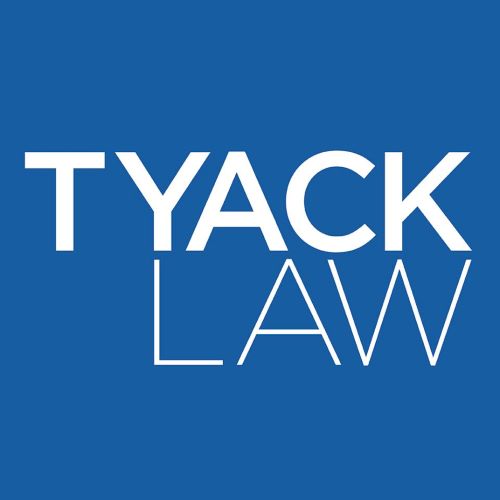
By: Holly B. Cline
On December 27, 2018, the Ohio General Assembly enacted House Bill 228 which, in relevant part, modified R.C. 2901.05 (effective March 28, 2019), Ohio's affirmative defense statute. [1]
House Bill 228 Amendments to R.C. 2901.05
The relevant modifications to R.C. 2901.05 are as follows (newly enacted text is underlined):
(A) Every person accused of an offense is presumed innocent until proven guilty beyond a reasonable doubt, and the burden of proof for all elements of the offense is upon the prosecution. The burden of going forward with the evidence of an affirmative defense, and the burden of proof, by a preponderance of the evidence, for an affirmative defense other than self-defense, defense of another, or defense of the accused’s residence as described in division (B)(1) of this section, is upon the accused.
(B)(1) A person is allowed to act in self-defense, defense of another, or defense of that person’s residence. If, at the trial of a person who is accused of an offense that involved the person’s use of force against another, there is evidence presented that tends to support that the accused person used the force in self-defense, defense of another, or defense of that person’s residence, the prosecution must prove beyond a reasonable doubt that the accused person did not use the force in self-defense, defense of another, or defense of that person’s residence, as the case may be.[2]
Rep. Terry Johnson and Rep. Sarah LaTourette were the co-sponsors of House Bill 228. In his written testimony to the members of the Federalism and Interstate Relations Committee, Rep. Johnson described the amendments to R.C. 2901.05 proposed by House Bill 228 by noting that “America’s founding fathers envisioned a justice system where the burden of proof laid on the accuser and not the accused.”[3] Rep. Johnson proffered that Supreme Court of the United States’ 1987 holding that state legislatures can shift the burden of proving self-defense by a preponderance of the evidence to the accused relied upon the conclusion that there was no constitutional right to “self-defense.”[4] Rep. Johnson submitted, however, that following the Court’s 2008 decision in District of Columbia v. Heller, “the inherent right of self-defense [is] central to the Second Amendment right.”[5]
House Bill 228 Amendments to R.C. 9.68(A)
The Ohio General Assembly explained its reasons for enacting House Bill 228, in part, in its amendment to R.C. 9.68(A) (effective December 28, 2019) (newly enacted text is underlined):
The general assembly also finds and declares that it is proper for law-abiding people to protect themselves, their families, and others from intruders and attackers without fear of prosecution or civil action for acting in defense of themselves or others.
Except as specifically provided by the United States Constitution, Ohio Constitution, state law, or federal law, a person, without further license, permission, restriction, delay, or process, including by any ordinance, rule, regulation, resolution, practice, or other action or any threat of citation, prosecution, or other legal process, may own, possess, purchase, acquire, transport, store, carry, sell, transfer, manufacture, or keep any firearm * * *.
Any such further license, permission, restriction, delay, or process interferes with the fundamental individual right described in this division and unduly inhibits law-abiding people from protecting themselves, their families, and others from intruders and attackers and from other legitimate uses of constitutionally protected firearms * * * and the state by this section preempts, supersedes, and declares null and void any such further license, permission, restriction, delay, or process.[6]
On March 19, 2019, the City of Columbus filed a civil suit against the State of Ohio in Franklin County Court of Common Pleas Case No. 19 CV 2281, requesting a preliminary injunction that would delay implementation of the entire law enacted by House Bill 228 until the lawsuit is resolved. In its complaint and motion for a preliminary injunction, the City took particular issue with the fact that House Bill 228’s modifications to R.C. 9.68 (effective December 28, 2019) curtails the authority designated by Article XVIII of the Ohio Constitution to municipalities to set local regulations. Thus, the City has argued that R.C. 9.68 and Am.Sub. H.B. 228 violate the Home Rule Provisions of the Ohio Constitution, the Separation of Powers Doctrine, and Article II, Section 32 of the Ohio Constitution.
Retroactivity of House Bill 228’s Amendments to R.C. 2901.05
It is unclear from the plain text of the bill as to whether House Bill 228’s changes to R.C. 2901.05 were intended by the Ohio General Assembly to be retroactively applied to offenses that occurred before March 28, 2019 (when House Bill 228’s changes to R.C. 2901.05 went into effect) but are tried after the March 28, 2019.
The introductory Comment to the Provisional Changes[7] made by the Ohio Jury Instructions Committee of the Ohio Judicial Conference to the relevant Ohio Jury Instructions (OJI) provisions reflects the uncertainty of the applicability of House Bill 228’s changes to R.C. 2901.05.
The Provisional Changes to OJI CR 417.27 (Affirmative defense R.C. 2901.05(C) [Rev. 3/23/19]); OJI CR 421.19 (Self-defense against danger of bodily harm – use of non-deadly force R.C. 2901.05 (effective 3/28/19) [Rev. 3/23/19]); OJI CR 421.191 (Defense of another – use of non-deadly force R.C. 2901.05 (effective 3/28/19) [Rev. 3/23/19]); OJI CR 421.21 (Self-defense against danger of death or great bodily harm – use of deadly force R.C. 2901.05 (effective 3/28/19) [Rev. 3/23/19]); OJI CR 421.211 (Defense of another against danger of death or great bodily harm – use of deadly force R.C. 2901.05 (effective 3/28/19) [Rev. 3/23/19]); and OJI CR 425.03 (Affirmative defense [Rev. 3/23/19]) include the following Comment:
Effective 3/28/19, R.C. 2901.05 shifted the burden of proof from the defendant having to prove self-defense, defense of another, or defense of a residence by the preponderance of the evidence to the state having to disprove the same beyond a reasonable doubt. The General Assembly did not express a clear intent whether HB 228, which shifted the burden of proof of self-defense, applies to offenses before 3/28/19. The court must decide as a threshold matter whether HB 228 is retroactive. If the court decides that it is not retroactive, see this Committee’s prior instruction on the same subjects.
The uncertainty regarding the retroactive application of House Bill 228’s changes to R.C. 2901.05 has already been seen in Ohio’s lower courts. Indeed, while Montgomery County Court of Common Pleas judge recently ruled that House Bill 228’s changes are NOT retroactive, Wayne County judges seem to have taken opposite stance.
Article II, Section 28, of the Ohio Constitution proscribes the General Assembly from enacting retroactive laws. Pursuant to R.C. 1.48, a statute is presumed to be prospective in its operation unless it is expressly made retroactive. Notably, however, the Supreme Court of the United States has held that a new rule for the conduct of criminal prosecutions is to be applied retroactively to all cases, state or federal, pending on direct review or not yet final, with no exception for cases in which the new rule constitutes a “clear break” with the past.[8]
From the testimony of Rep. Terry Johnson and House Bill 228’s changes to R.C. 9.68(A) (albeit, effective later this year), one can arguably glean a legislative intent that House Bill 228’s changes to R.C. 2901.05 be retroactively applied. Rep. Johnson explained in his written hearing testimony that:
After this declaration of a right to self defense, state legislatures and judicial conferences around the country began to shift their burdens of proof back to the prosecution. Ohio, however, has steadfastly retained our model of guilty until proven innocent in cases of self defense despite the premise Martin now being out of date according to some legal scholars. This bill requires that a defendant still present evidence that they acted in self defense, however the burden of proof that the defendant is a criminal will be restored to the prosecution. * * * If the prosecutors are upset that they now have to prove someone is guilty before they throw them in jail, I can kindly show them some less civilized portions of the globe where the local despot will appreciate their brand of “justice.”[9]
It is a basic principle of criminal law that the prosecution bears the burden of proving a defendant’s guilt beyond a reasonable doubt.[10] The United States Supreme Court has held that the Due Process Clause of the Fourteenth Amendment to the United States Constitution protects a defendant in a criminal case against a conviction “* * * except upon proof beyond a reasonable doubt of every fact necessary to constitute the crime with which he is charged.”[11] The “due course of law” clause of Section 16, Article I of the Ohio Constitution, has been considered the equivalent of the “due process of law” clause in the Fourteenth Amendment.[12]
The Supreme Court of the United States has recognized that the definitions of criminal offenses and affirmative defense, as well as the allocation of burdens of proof are primarily within the province of a state’s legislature.[13] “[I]it is normally ‘within the power of the State to regulate procedures under which its laws are carried out, including the burden of producing evidence and the burden of persuasion,” and its decision in this regard is not subject to proscription under the Due Process Clause unless “it offends some principle of justice so rooted in the traditions and conscience of our people as to be ranked as fundamental.”[14]
Pursuant to its constitutional authority to allocate burdens of proof, the Ohio General Assembly expressly allocated the burden of proof in certain types cases involving self-defense by requiring that the prosecution must prove beyond a reasonable doubt that the accused person did not use the force in self-defense, defense of another, or defense of that person's residence in House Bill 228. Although House Bill 228 does not expressly state that its changes to R.C. 2901.05 are to be retroactively applied, the due process concerns reflected in the legislative history of House Bill 228 tend to suggest that revised R.C. 2901.05 must be retroactively applied to cases charging offenses that occurred prior to March 28, 2019 but were still pending after amended R.C. 2901.05 went into effect.
Indeed, as expressed by Rep. Johnson, the Ohio legislature’s purpose in enacting House Bill 228 was “to make sure that any law abiding person in the state of Ohio has the right to defend themselves or others and that the justice system lives up to the mantra of ‘innocent until proven guilty.’”[15] House Bill 228 purportedly “fixes what is clearly broken in the Ohio Revised Code when it comes to self defense in light of common sense and landmark judicial decisions * * *.”[16]
Moreover, because House Bill 228’s changes to R.C. 2901.05 reflect a new rule for the conduct of criminal prosecutions—to wit, the allocation of the burden of proof in certain types of cases—R.C. 2901.05 should be retroactively applied to all cases pending on direct review or not yet final, as the new rule constitutes a “clear break” with the past.
It follows, then, that if the Ohio General Assembly’s purpose in enacting House Bill 228—as reflected by the statements of House Bill 228’s sponsors—was, among other things, to provide further due process protections to criminal defendants and to “fix” a clearly broken law, amended R.C. 2901.05 should logically apply to all pending cases.
[1] See 2018 Am.Sub.H.B. No. 228, Sec. 1; R.C. 2901.05(A); R.C. 2901.05(B)(1).
[2] See id.
[3] Hearing before the Committee on Federalism and Interstate Relations, Ohio House, 132nd General Assembly (June 20, 2017) (Testimony of Rep. Terry Johnson), available at https://www.legislature.ohio.gov/legislation/legislation-committee-documents?id=GA132-HB-228.
[4] See id., discussing Martin v. Ohio, 480 U.S. 228, 107 S. Ct. 1098, 94 L. Ed. 2d 267 (1987).
[5] Hearing before the Committee on Federalism and Interstate Relations, Ohio House, 132nd General Assembly (June 20, 2017) (Testimony of Rep. Terry Johnson), available at https://www.legislature.ohio.gov/legislation/legislation-committee-documents?id=GA132-HB-228. See District of Columbia v. Heller, 554 U.S. 570, 128 S. Ct. 2783, 171 L. Ed. 2d 637 (2008), paragraph one of the syllabus (“The Second Amendment protects an individual right to possess a firearm unconnected with service in a militia, and to use that arm for traditionally lawful purposes, such as self-defense within the home.”).
[6] See 2018 Am.Sub.H.B. No. 228, Sec. 1; R.C. 9.68(A) (effective December 28, 2019).
[7] Jury Instructions, Ohio Judicial Conference, http://www.ohiojudges.org/Committee/1267 (last visited May 3, 2019). The Ohio Jury Instructions (OJI) Committee drafts Ohio Jury Instructions for newly enacted legislation and updates existing instructions as needed and required by intervening legal opinions or events. The OJI Committee provides the provisional instructions formulated by the OJI committee on their website up until the revised instructions have been released for publication. As of May 3, 2019, the following jury instructions have been provisionally changed to reflect House Bill 228’s modification to R.C. 2901.05: OJI CR 417.27, OJI CR 417.41, OJI CR 421.19, OJI CR 421.21, OJI CR 421.23, OJI CR 421.191, OJI CR 421.211, OJI 425.03.
[8] Griffith v. Kentucky, 479 U.S. 314, 328, 107 S. Ct. 708, 93 L. Ed. 2d 649 (1987) (holding that on direct review, a new constitutional rule must be applied retroactively “to all cases, state or federal”). See also Martin v. Hunter’s Lessee, 14 U.S. 304, 1 Wheat. 304, 340-341, 344, 4 L.Ed. 97 (1816).
[9] Hearing before the Committee on Federalism and Interstate Relations, Ohio House, 132nd General Assembly (June 20, 2017) (Testimony of Rep. Terry Johnson), available at https://www.legislature.ohio.gov/legislation/legislation-committee-documents?id=GA132-HB-228.
[10] See U.S. CONST. amend XIV, § 1; OHIO CONST. art. I, § 10; OHIO CONST. art. I, § 16.
[11] In re Winship, 397 U.S. 358, 364, 90 S. Ct. 1068, 25 L. Ed. 2d 368 (1970); Patterson v. New York, 432 U.S. 197, 210, 97 S. Ct. 2319, 53 L. Ed. 2d 281 (1977).
[12] Direct Plumbing Supply Co. v. Dayton, 138 Ohio St. 540, 544–45, 38 N.E.2d 70 (1941); Ohio Const. art. I, § 16; U.S. Const. amend XIV, § 1.
[13] See Patterson, 432 U.S. at 201–02.
[14] Id., quoting Speiser v. Randall, 357 U.S. 513, 523, 78 S. Ct. 1332, 2 L. Ed. 2d 1460 (1958); Leland v. Oregon, 343 U.S. 790, 798, 72 S. Ct. 1002, 96 L. Ed. 1302 (1952); Snyder v. Massachusetts, 291 U.S. 97, 105, 54 S. Ct. 330, 78 L. Ed. 674 (1934), reversed on other grounds.
[15] Hearing before the Committee on Federalism and Interstate Relations, Ohio House, 132nd General Assembly (June 20, 2017) (Testimony of Rep. Terry Johnson), available at https://www.legislature.ohio.gov/legislation/legislation-committee-documents?id=GA132-HB-228.
[16] Id.
Disclaimer: The information in this blog post (“post”) is provided for general informational purposes only, and may not reflect the current law in your jurisdiction. No information contained in this post should be construed as legal advice from the Tyack Law Firm Co., L.P.A., or the individual author, nor is it intended to be a substitute for legal counsel or representation on any subject matter. No reader of this post should act or refrain from acting on the basis of any information included in, or accessible through, this post without seeking the appropriate legal or other professional advice on the particular facts and circumstances at issue from a lawyer licensed in the recipient’s state, country, county, or other appropriate licensing jurisdiction.
Talk with an experienced lawyer today.
Fill out the form below to get started with your case evaluation.















